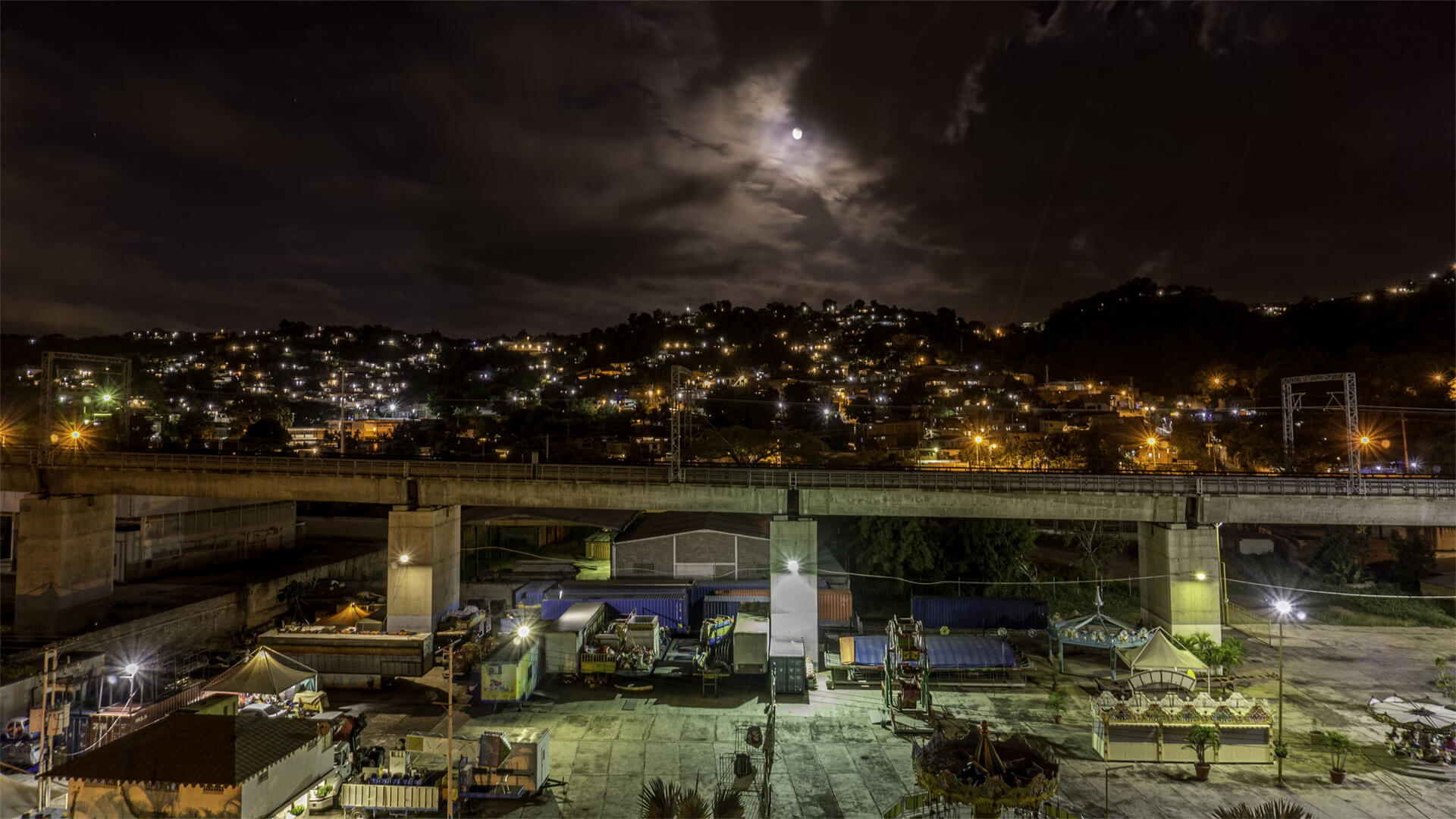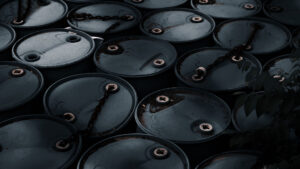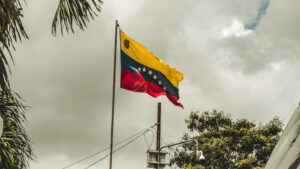After years of mismanagement and corruption, Venezuela may have finally reached its tipping point.
A country that once boasted high education levels, cultural achievements and a thriving oil industry, has managed to turn a winning hand into a losing one. Leaders like Hugo Chávez and Nicolás Maduro helped lead the country down the path of collapse.
At this point, the only thing keeping the country afloat is the partial lifting of sanctions by the Biden administration; however, the continued neglect is leading Venezuela’s oil industry towards failure. Without skilled labor or a major company to step in, we could see Venezuela become a net oil importer within a year.
Once the oil goes, so does everything else. We’re talking economic woes, societal dislocations and famine.
Here at Zeihan On Geopolitics we select a single charity to sponsor. We have two criteria:
First, we look across the world and use our skill sets to identify where the needs are most acute. Second, we look for an institution with preexisting networks for both materials gathering and aid distribution. That way we know every cent of our donation is not simply going directly to where help is needed most, but our donations serve as a force multiplier for a system already in existence. Then we give what we can.
Today, our chosen charity is a group called Medshare, which provides emergency medical services to communities in need, with a very heavy emphasis on locations facing acute crises. Medshare operates right in the thick of it. Until future notice, every cent we earn from every book we sell in every format through every retailer is going to Medshare’s Ukraine fund.
And then there’s you.
Our newsletters and videologues are not only free, they will always be free. We also will never share your contact information with anyone. All we ask is that if you find one of our releases in any way useful, that you make a donation to Medshare. Over one third of Ukraine’s pre-war population has either been forced from their homes, kidnapped and shipped to Russia, or is trying to survive in occupied lands. This is our way to help who we can. Please, join us.
Transcript
Hey everybody. Peter Zeihan here, coming to you from the south of France. Here in Cassis. today we’re going to talk about dream, specifically the Birkin dream that is Venezuela. under 20 years of ridiculous mismanagement and theft by the governments of Hugo Chavez and now Nicolas Maduro. the state’s broken, basically, we’ve had two decades of the governing authorities literally stealing everything that wasn’t stripped down and then getting the wrench and getting a lot of the stuff that was stripped down.
to the point that they simply didn’t just confiscate materials, they stripped it of equipment, and melted the down or up for parts, and there’s really nothing left. So the country that used to have the highest educational levels in Latin America, the country that used to have the highest standard of living in the most cultural achievement, is now, teetering on the verge of being a broken state, a failed state.
And I don’t think there’s anything we can be done to stop it at this point. So the roughly one third of the population that is out migrated since, the last, six, seven years, is just the beginning of the end of the dissolution of the state proper. what’s going on right now is that in calendar year 2022 and calendar year 2023, the Biden administration did a partial lifting of sanctions on the regime.
basically saying that if you start working in the direction of free and fair elections, we will allow investment to come in to stabilize the energy sector and get some more oil out of the ground. we’re going to trust your word for it. And, and then we will reassess when we get close to elections in 2024.
Well, that happened. And US super major Chevron moved in and oil production did tick up. this is a country that used used to produce like 4 million barrels a day. they had fallen under 800,000 as of 2021. they are now back up technically to something closer to a million. But in the last several weeks, it’s been clear that, the government of Maduro has no intention of having real elections.
And so the sanctions are steadily snapping back into place, and Chevron is basically throwing in the towel and packing up. And we’ve already seen output drop by about a quarter in just the last couple of months. Now there’s a separate conversation we had here about the Biden administration’s energy policy towards everything. it the short, short, short, version is that when it comes to fossil fuel production, the Biden administration wants to stabilize and even increase volumes outside of North America in order to keep American inflation under control, but does not want to expand.
And we actually would rather restrict fossil fuel production within the United States in order to achieve the green transition. Now, there’s a lot of things about that that are inconsistent. We’re going to pick that apart at another time. anyway, for Venezuela, that does mean for the last two years that Washington has turned a blind eye to abuses in order to keep the oil flowing.
Well, now that it is very clear that the country is not going to have elections, all of that is falling apart, and we’re probably down to under three quarters of a million barrels of oil flowing out of Venezuela right now. Their domestic consumption is probably about 300,000 barrels per day. But all of those numbers are squishy. this isn’t like a traditional oil field where you drill past the cap rock, you release the pressure and you get a gusher, or where you pump water into the formation to generate pressure, and then the water laced with oil comes up and you separate the two.
It’s not to be like shale where you go down and you frack a solid rock in order to free tiny little pockets of petroleum. This stuff is sludge at room temperature, even in the tropics. it is solid. And you have to mix it with a lighter distillate if you are going to put into a pipeline. Traditionally, until several years ago, they would bring in naphtha from the United States for that.
More recently, because that hasn’t been available. They’ve been bringing in kerosene from Iran. And so these imports of hydrocarbons oftentimes get mixed up with production and export numbers. So the 700,000 production, the 300,000 consumption, those are probably actually inflated. The numbers are probably 100,000 to 200,000 lower. Now what this means is without Chevron this thing is all going to go to hell.
most of the skilled labor that made up PDVSA, that’s the state oil company in Venezuela, fled. In fact, there was an attempted coup against Chavez back in the early 2000. And so the really high end stuff, the stuff that was part of the out of Venezuela being such a successful state left a long time ago and in bits and pieces ever since, the middle management and the secondary skill set is left, and now there’s really nothing left, especially after the famine of 4 or 5 years ago.
So the ability of Adivasis to maintain any oil output is negligible. And without Chevron or someone like it, it’s all going to fall apart. People like to talk about the Chinese, the Russians, Iranians coming in, but they don’t have any experience in this sort of oil patch. So we are probably going to see a collapse of what’s left of the output this year and early in the next year.
And almost certainly barring a significant change in policy with the United States, we’re going to see Venezuela fall into the errors of being the oil importer within a year, maybe a year and a half. it sounds bad. It is bad, but actually already is bad because one of the many, many, many, many, many mistakes that Chavez Maduro made is they hated the United States so much, and their spending was so crazy that they started pre-selling their oil specifically to China and to a lesser degree, to Russia.
So, you know, we’ll take X number of billions of dollars from you now, and we will pay you back with raw crude in the years to come. Well, what that means is the Venezuelans are already not getting money from the oil that they produce. it all just goes to pay off their bills. and so the effort on the part of the Maduro government is simply to keep the crude flowing is nonexistent.
And so we are going to see this collapse. And as that happens, the ability of getting even a modicum of foreign currency to pay for the 80% of the food that they now import, because they destroyed the agricultural sector is on deck. So the famines of the past, the dislocations of the past, the migrations of the past, these have all just been the appetizer, of course.
And over the next very few years, we’re going to see the full collapse of Venezuelan society.







